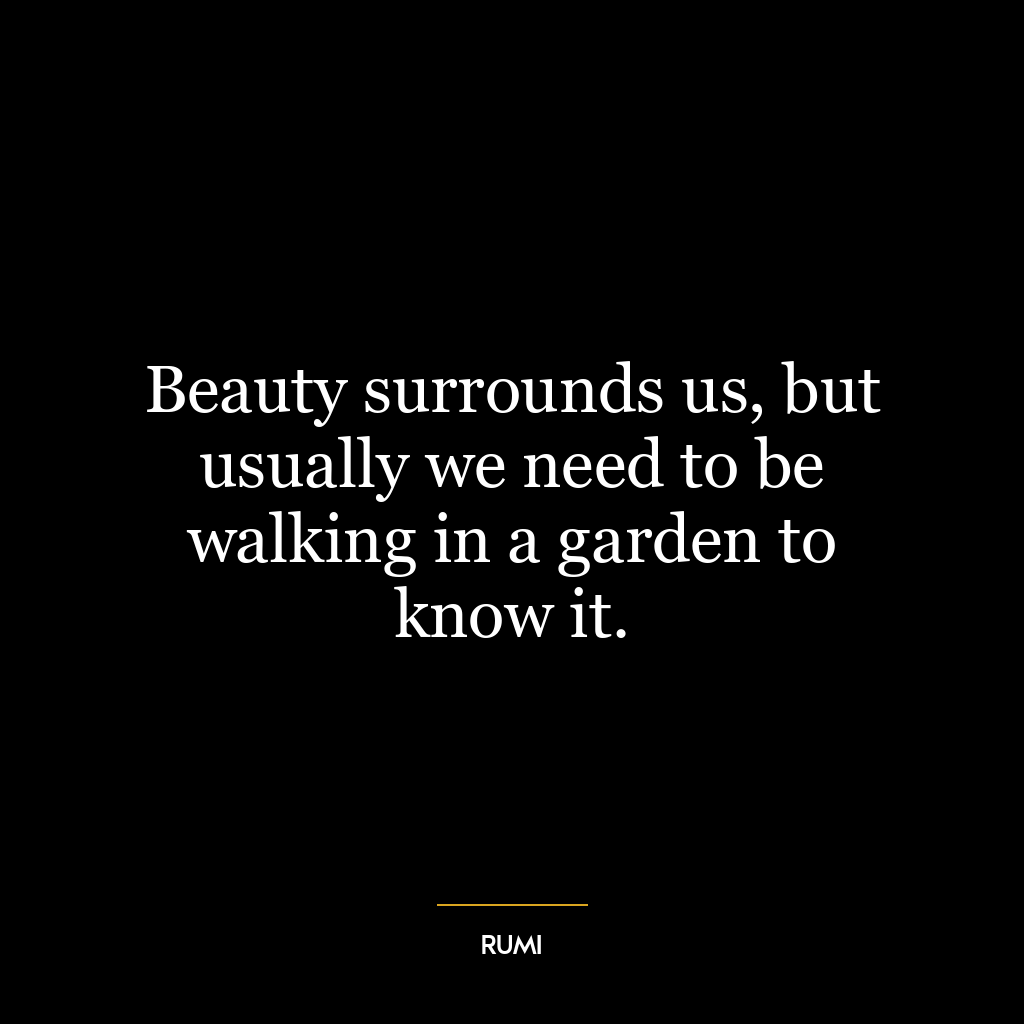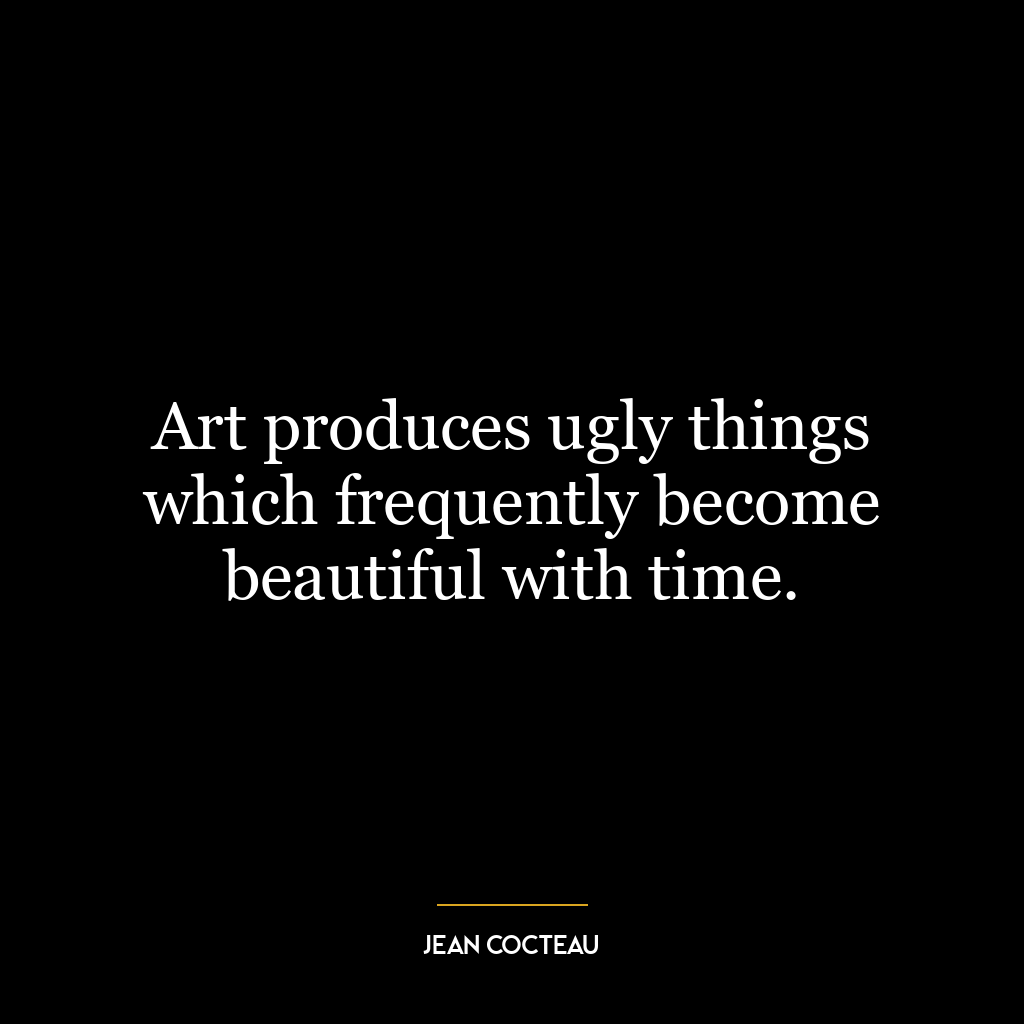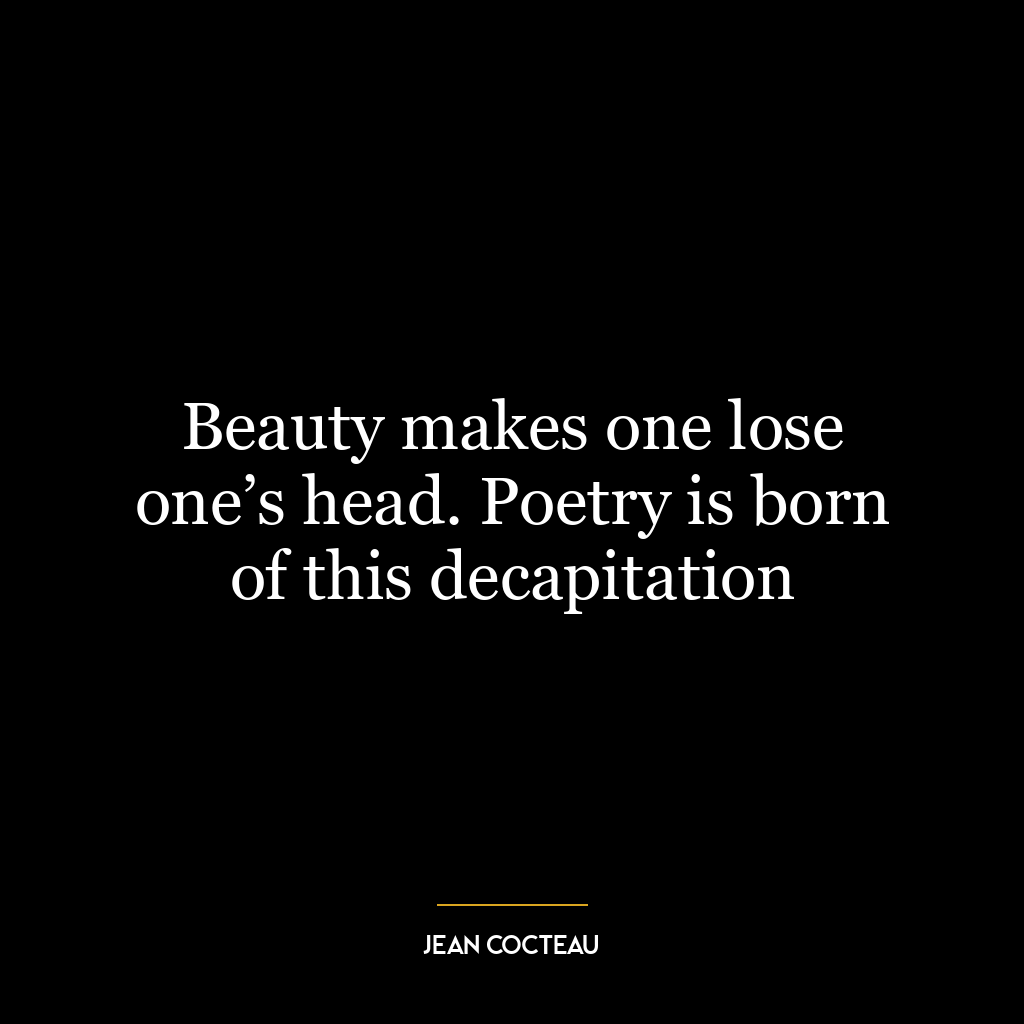This quote suggests that beauty is omnipresent, it’s everywhere around us, but we often fail to recognize it unless we’re in an environment that is typically associated with beauty, like a garden. It emphasizes our tendency to overlook the beauty in ordinary things and everyday life, and our inclination to appreciate beauty only when it’s presented in a grand, obvious manner.
The garden metaphor is particularly apt. Gardens are cultivated spaces where beauty is intentionally created and maintained. When we’re in a garden, we expect to see beauty, we’re primed for it. But beauty exists outside of these spaces as well. It’s in the mundane, the commonplace, the overlooked details of life.
Applying this quote to today’s world, it can be seen as a call to slow down and appreciate the beauty of the everyday. In our fast-paced, technology-driven society, we often miss the beauty that’s right in front of us because we’re too busy, too distracted, or too focused on seeking out grand, garden-like displays of beauty.
In terms of personal development, it encourages mindfulness and a shift in perspective. It prompts us to seek out and appreciate the beauty in our everyday lives, to find joy and wonder in the ordinary. It’s about training ourselves to see, and appreciate, the gardens that exist in every moment, in every place, and in every person. This could lead to a more fulfilling, joyful life, as we come to appreciate the world around us in a deeper, more meaningful way.















